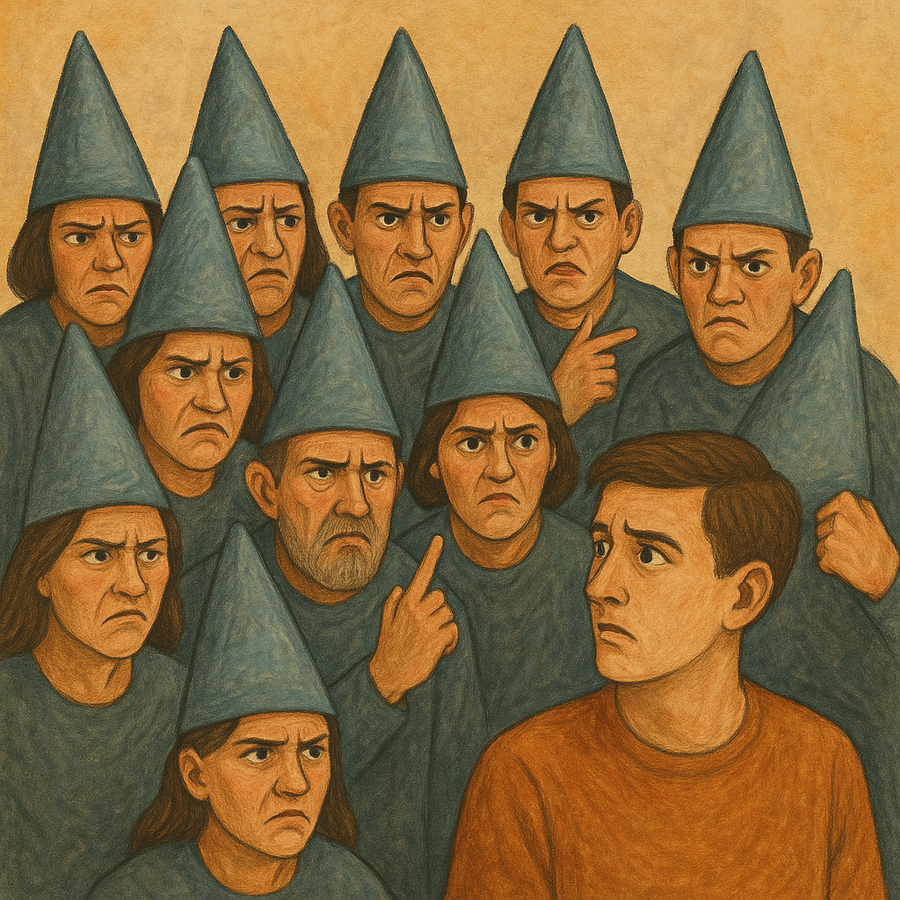One of the founders of Christian asceticism, Anthony the Great (3rd–4th century), has a striking expression:
“The last times will come, and ten sick people will come to one healthy person and say, ‘You are sick because you are not like us.’”
In the “last times,” when everything is collapsing—as is happening now—it’s only natural for things to turn upside down. But these “last times” are always prepared by the “penultimate times,” and those by even earlier ones. In other words, the foundation of collapse is laid long before the collapse itself.
So it turns out that the ten truly sick individuals always present the one healthy person as the sick one.
In the first century, when the crowd—manipulated by the chief priests and elders—demanded that Christ be crucified and Barabbas released, was that the “last times”? No. In a certain sense, it was the beginning of time.
Read also
For me, the symptoms of society’s mass illness became clear in July 2016, when the so-called “Sasna Tsrer” group seized a police regiment and killed a man—and the majority of citizens praised it as an act of “rebellion” and “heroism.” Even people with sound minds, in order to please the crowd, applauded the Tsrers’ dangerous adventure, afraid to play the role of the “only healthy one.”
Almost ten years later, the dominance of the “ten sick” has become normal—ordinary, even.
Conversations about Artsakh, the Genocide, and national values—which ten years ago were dismissed as extreme, unhealthy, or marginal—have now become fully acceptable, “healthy,” and even seen as the only correct perspective.
Everything else is labeled as wrong: “false patriotism,” “nostalgia,” or “attempts to cling to the past.”
And the ratio remains the same: 10 to 1.
The main culprits, of course, are those who manipulate public opinion. But there’s nothing new in that either.
“They have misled my people, saying, ‘Peace, peace!’ when there is no peace.
When a flimsy wall is built, they cover it with whitewash.”
(Ezekiel 13:10)
Aram ABRAHAMYAN



















































